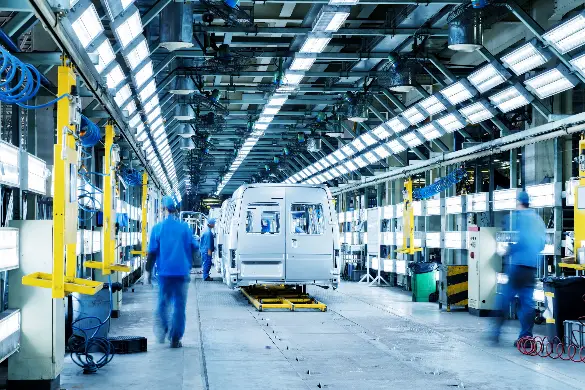
There are several impactful changes continuing to face the auto industry throughout and following COVID-19. The outbreak of the Coronavirus has caused widespread economic hardship and concern for businesses in the automotive industry. Consistently faced with evolving consumer demand, global political uncertainty, and declining sales, many automotive manufacturers have been forced to get creative in order to remain competitive. Structural changes across the automotive industry are anticipated to expect everything from production, supply chains, and demand. Read on to learn about the impactful changes facing the auto industry after COVID-19.
Shifting Workforce
Throughout the pandemic, the auto industry has been greatly impacted by a shifting workforce. According the Bureau of Labor Statistics, automakers and suppliers employ approximately one-million people in the United States. To meet CDC guidelines, some automotive employees and executives have begun working from home. However, many of these employees are required to work on assembly lines or in factories where remote work is simply not feasible. If viral outbreaks occur within these factories, it can greatly impact production capacity, health & safety, and reputation for the auto company. Throughout and following the outbreak of COVID-19, many auto manufacturers will invest in training sessions to educate employees on how to minimize the spread of the disease. These educational sessions will help employees understand how to practice safe social distancing, remain safe in the workplace, as well as what to do if they feel symptoms of the Coronavirus. Certainly, these precautionary measures along with accommodating those infected with the virus will create shifts in the workforce.
Increase In Liability Car Insurance Protection
After COVID-19, it is likely that the auto industry will experience a rise in demand for liability insurance protection. Auto liability coverage is a requirement in 48 States in the U.S. However, throughout the pandemic, fewer consumers were relying on their personal vehicles for daily work and leisure travel. As a result of more drivers curtailing their driving throughout the quarantine, many cancelled their existing auto insurance until further notice. Because of this, liability insurance coverage experienced a steady decline. However, with more employees returning to work now, this trend is changing. Drivers know it is essential to look for new, reliable auto liability coverage. In fact, it is arguably the most important and valuable type of vehicle insurance to carry to protect yourself. Analyzing the automotive industry after the Coronavirus, it is vital to acquire liability insurance protection for your vehicle.
Disrupted Supply Chains
Analyzing the automotive manufacturing and supply industry after the pandemic, it is likely that businesses across the globe will face disrupted supply chains. Industrial shutdowns have greatly impacted assembly lines and production quantities for U.S. auto manufacturers. To cope after the pandemic, it is likely businesses will increase the use of robotics and automation to accelerate assembly lines. In addition to optimizing speed and efficiency, AI-driven robotic assembly line systems limit the spread of the Coronavirus in automotive factories. Simultaneously, businesses will be required to mobilize a command center to properly organize agile risk responses. This includes integrating risk mitigation protocols, scenarios, and workflows into daily automotive operations.
Reduced Electric Vehicle Sales
As the Coronavirus continues to impact operational conditions nationwide, the auto business could potentially experience a reduction in U.S electric vehicle sales. Prices for oil have fallen tremendously during the pandemic. With gasoline becoming more affordable for car owners, many experts predict electrical vehicle sales could suffer tremendously. The sale of sustainable electric vehicles has primarily been driven by the need to combat expensive gas prices while simultaneously reducing your carbon footprint. However, as the price for a tank of gas continues to decline, there is less incentive to purchase an electric car.
Increased Digital Customer Engagements
Following the pandemic, there will be increased digital customer engagements. COVID-19 has limited direct, physical customer interactions at auto shows, dealerships, and auctions. Whether it be due to CDC mandates or consumer preferences, there are new ample opportunities to engage with shoppers in the digital medium. This has directly spiked the demand for online used car dealers companies. For existing dealerships, they can attempt to upgrade their digital platforms to continue vehicle sales. As the Coronavirus continues to impact operational conditions across the globe, the auto industry has been forced to face increased digital customer interactions.
There are several impactful changes facing the auto industry after the Coronavirus. First, the automotive sector has been greatly impacted by a shifting workforce. In addition, the industry will experience a rise in demand for liability insurance protection. At the same time, it is likely that businesses across the globe will face disrupted supply chains. Moreover, the auto business could potentially experience a reduction in electric vehicle sales. Furthermore, the auto industry has been forced to face increased digital customer interactions. The points mentioned above outline the impactful changes facing the auto industry after COVID-19.
 Business First Family Business, Accounting, Finance, Investing, Marketing And Management
Business First Family Business, Accounting, Finance, Investing, Marketing And Management